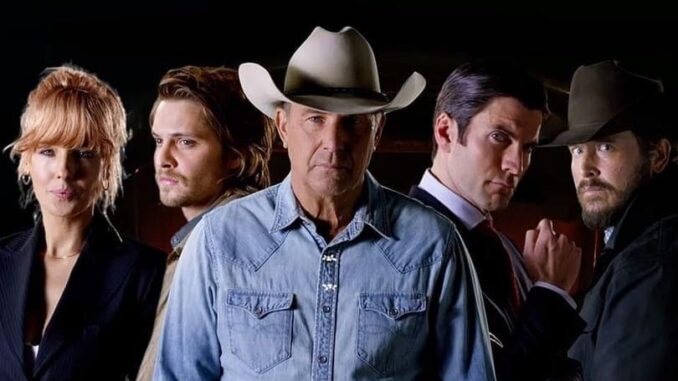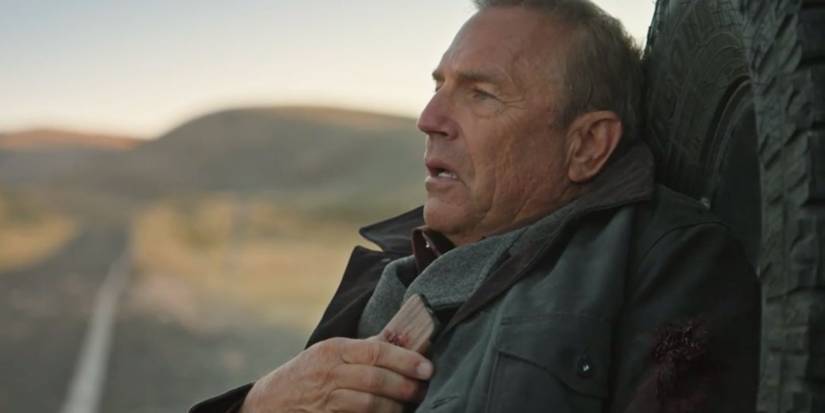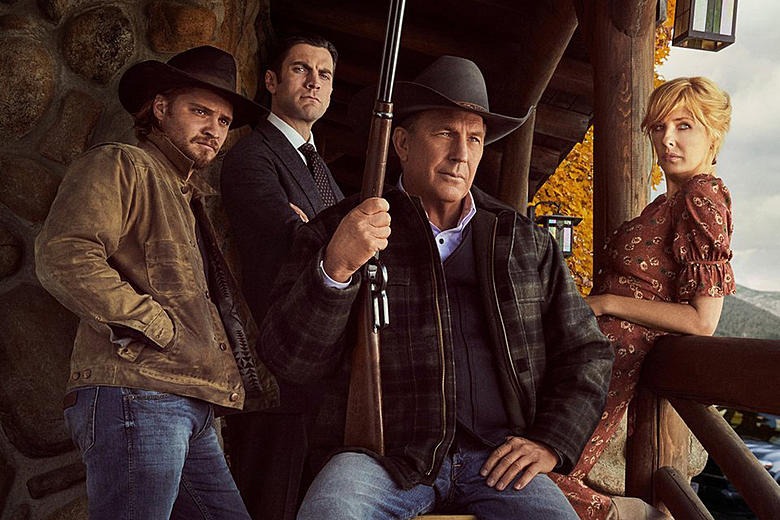
Kevin Costner’s Genuine Reaction to Grilled Octopus in Yellowstone
Yellowstone has never shied away from portraying dramatic family moments, but one dinner scene in particular left even the show’s lead actor, Kevin Costner, unsettled. Known for his portrayal of the tough and stoic John Dutton, Costner found himself genuinely disturbed by a dish served during a pivotal family dinner—grilled octopus. This surprising moment became a key scene that blended humor, tension, and the cultural clash central to the show’s themes.
A Dish That Broke the Dutton Mold
Food has always been an understated yet vital part of Yellowstone’s storytelling. Creator Taylor Sheridan’s commitment to realism even extended to hiring Chef Gabriel “Gator” Guilbeau as the on-set chef. Gator’s meals, served both on and off-screen, add authenticity to the show’s Montana setting, reflecting the characters’ ranching lifestyle and culinary preferences. Beef, game meats, and hearty, traditional dishes dominate the Dutton family’s table, symbolizing their roots and values.
However, Season 2’s third episode, “The Reek of Desperation,” took a culinary detour that shook things up. In a rare departure from the ranch’s usual menu, Beth Dutton, ever the provocateur, requested a Mediterranean dish—grilled octopus. The decision to serve such an unconventional dish in the Dutton household underscored not just Beth’s defiance but also the family’s underlying tensions. As the dish was unveiled, John’s visible discomfort mirrored Kevin Costner’s real-life reaction.
Behind the Octopus Scene

Chef Gator prepared the dish with an emphasis on authenticity, deliberately charring the octopus and presenting it without sauces or garnishes to preserve its dramatic visual impact. According to Gator, this choice was intentional: “It’s meant to be shocking, especially for someone like John Dutton who’d never dream of eating anything but meat from the land.” The sight of the charred tentacles on the plate was unsettling enough to elicit a genuine expletive from Costner, who later admitted the dish disturbed him to his core.
The scene wasn’t just about food. It served as a metaphor for the ideological and cultural clashes within the Dutton family. Beth’s choice to introduce a Mediterranean dish highlighted her detachment from the traditional values embodied by her father. For John, a man deeply rooted in Montana’s ranching culture, the octopus represented everything he opposed—modernity, change, and the erosion of his family’s legacy.
The Scene’s Cultural Context
The contrast between the Dutton family’s traditional meals and the Mediterranean dish is more than culinary. It reflects the broader cultural and ideological divides that are central to Yellowstone’s narrative. Montana’s cuisine—dominated by beef, game, and hearty, simple recipes—embodies the rugged, self-reliant lifestyle of its residents. Seafood, especially something as exotic as octopus, is not just uncommon but almost alien in this landlocked region.
In this context, Beth and Kayce’s willingness to embrace the Mediterranean dish represents their emotional and cultural distance from the ranch. Kayce’s indifferent comment, “I don’t care what I eat,” contrasts sharply with John’s staunch loyalty to tradition. Meanwhile, Beth’s sarcastic quip about needing a break from meat adds humor while emphasizing her defiance.
The Humor and Drama of the Dinner Table
The dinner table in Yellowstone often serves as a stage for the family’s dysfunction. In this scene, John’s attempts to steer the conversation away from conflict are quickly derailed. Beth’s laughter at Jamie’s arrival and her decision to serve him a single tentacle underscore her relentless antagonism. As always, the Duttons’ dinner is less about nourishment and more about power dynamics and unresolved tensions.
The scene’s humor doesn’t detract from its deeper significance. John’s refusal to eat the octopus and his eventual departure from the table symbolize his resistance to change and his growing alienation from his family. For viewers, it’s a poignant reminder of the sacrifices and compromises that come with protecting a legacy.
Kevin Costner’s Perspective
Costner’s genuine reaction to the octopus dish adds an extra layer of authenticity to the scene. In interviews, the actor has expressed his connection to John Dutton’s values and his admiration for the show’s depiction of ranching culture. His discomfort with the grilled octopus wasn’t just method acting; it was a reflection of his own sensibilities.
In many ways, Costner’s reaction mirrors that of the audience. For viewers unfamiliar with Mediterranean cuisine, the sight of the charred octopus might evoke the same visceral response. This shared reaction enhances the scene’s impact, making it one of Yellowstone’s most memorable moments.
Expanding Yellowstone’s Food Themes

Food continues to play a symbolic role in Yellowstone. In later episodes, the contrast between the Duttons’ traditional meals and modern culinary trends becomes even more pronounced. For example, in Season 5’s “Watch ‘Em Ride Away,” the arrival of a vegan activist at the ranch leads to a dinner featuring game meats like venison and duck. These scenes highlight the cultural and ideological battles that define the show.
The inclusion of Mediterranean and vegan dishes serves as a reminder of the external pressures facing the Duttons. As the world changes around them, their resistance to these changes becomes a central theme, reflected not just in their actions but in their meals.
Final Thoughts
The grilled octopus scene in Yellowstone is a perfect example of the show’s ability to blend humor, drama, and cultural commentary. It’s a moment that stays with viewers long after the episode ends, encapsulating the tensions and contradictions at the heart of the Dutton family.
For Kevin Costner, the scene was more than just another acting challenge. It was a moment of genuine discomfort that added authenticity to his portrayal of John Dutton. For the audience, it’s a reminder that even the smallest details—like a plate of octopus—can carry profound meaning in a story as rich and layered as Yellowstone’s.
